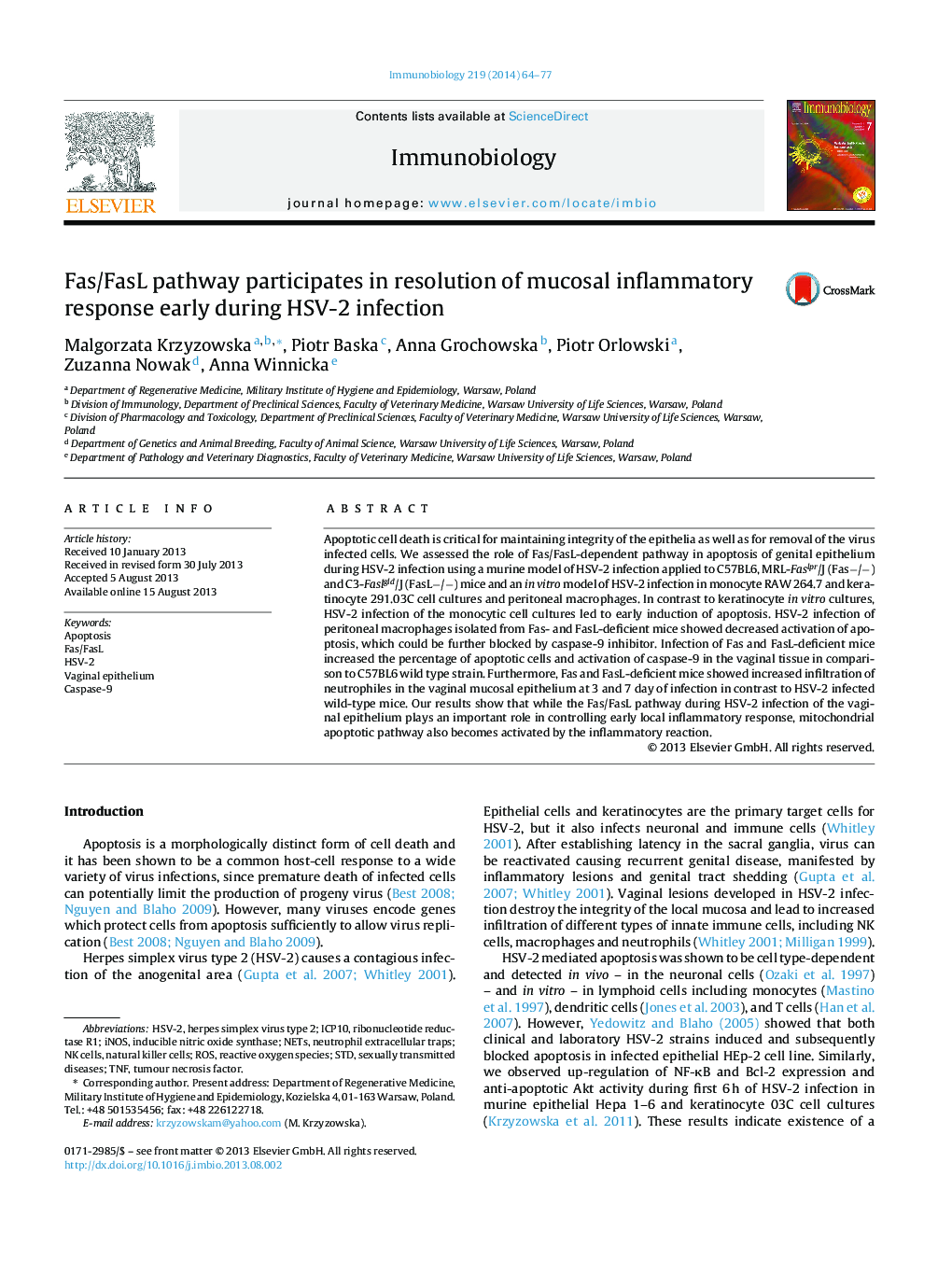| Article ID | Journal | Published Year | Pages | File Type |
|---|---|---|---|---|
| 2182846 | Immunobiology | 2014 | 14 Pages |
Apoptotic cell death is critical for maintaining integrity of the epithelia as well as for removal of the virus infected cells. We assessed the role of Fas/FasL-dependent pathway in apoptosis of genital epithelium during HSV-2 infection using a murine model of HSV-2 infection applied to C57BL6, MRL-Faslpr/J (Fas−/−) and C3-Faslgld/J (FasL−/−) mice and an in vitro model of HSV-2 infection in monocyte RAW 264.7 and keratinocyte 291.03C cell cultures and peritoneal macrophages. In contrast to keratinocyte in vitro cultures, HSV-2 infection of the monocytic cell cultures led to early induction of apoptosis. HSV-2 infection of peritoneal macrophages isolated from Fas- and FasL-deficient mice showed decreased activation of apoptosis, which could be further blocked by caspase-9 inhibitor. Infection of Fas and FasL-deficient mice increased the percentage of apoptotic cells and activation of caspase-9 in the vaginal tissue in comparison to C57BL6 wild type strain. Furthermore, Fas and FasL-deficient mice showed increased infiltration of neutrophiles in the vaginal mucosal epithelium at 3 and 7 day of infection in contrast to HSV-2 infected wild-type mice. Our results show that while the Fas/FasL pathway during HSV-2 infection of the vaginal epithelium plays an important role in controlling early local inflammatory response, mitochondrial apoptotic pathway also becomes activated by the inflammatory reaction.
